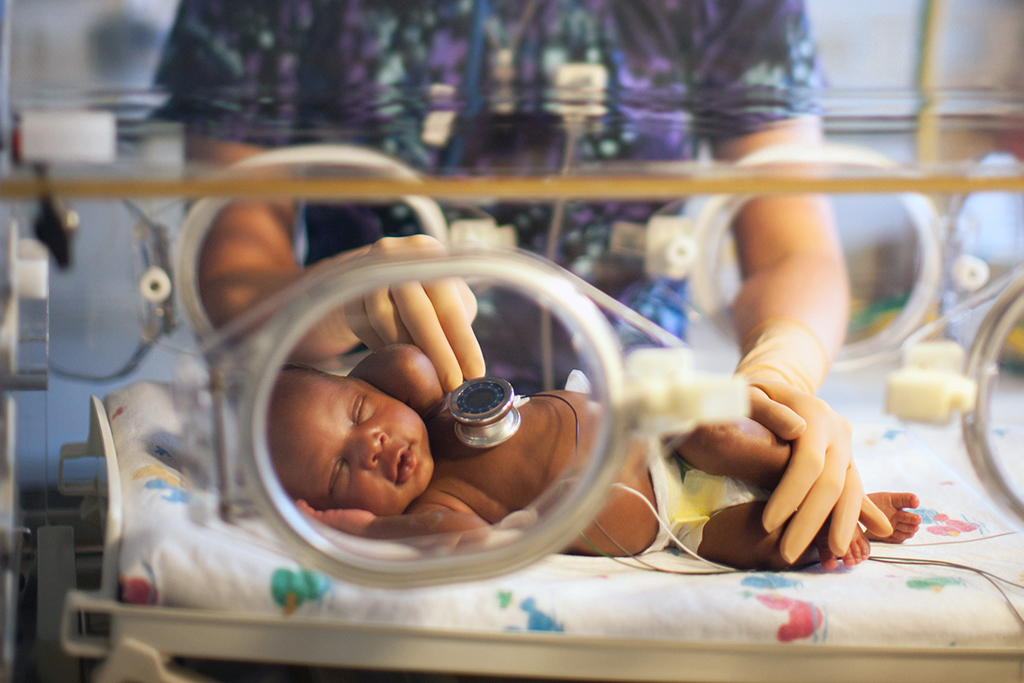How Do You Take Care of a Newborn in the Hospital?
To take care of a newborn in the hospital, make sure to wash your hands before handling them and support their head and neck while holding them. Now more than ever, hospitals are taking precautions to ensure the safety of newborns and their parents during their stay.
Being a new parent can be overwhelming, but having a newborn in the hospital can be particularly nerve-wracking. You want to make sure you’re doing everything in your power to keep them healthy and safe. Between the medical staff, the hospital routines, and the general stress of this new experience, it can be a lot to take in.
In this article, we’ll go through some of the basics of taking care of a newborn in the hospital, so that you can feel confident and capable during this important time. From baby baths to diaper changes, we’ve got you covered.

Credit: www.chla.org
Understanding The Basics Of Newborn Care In The Hospital
Taking care of a newborn in the hospital involves meeting the baby’s basic needs. It’s crucial to provide them with adequate food, warmth, and hygiene. Hospitals conduct regular check-ups and screenings to ensure that the newborns are healthy. Common procedures such as umbilical cord care, circumcision (if necessary), and hearing test are performed.
Infection prevention measures like washing hands, sanitizing surfaces, and immunization are also essential to protect newborns from illnesses. Proper newborn care in the hospital establishes a foundation for the baby’s well-being in the long run. Being aware of the basics ensures parents feel equipped to provide their newborn with the best care possible.
How To Prepare For Newborn Care In The Hospital
Choosing a hospital is the first step in preparing for newborn care. Research your options beforehand and find one that aligns with your birth plan. Make sure you pack essentials such as baby clothes and a car seat for the hospital stay.
Additionally, prepare for post-delivery recovery by packing comfortable clothing and necessary toiletries. Speak with your healthcare provider to discuss any specific needs for your newborn’s care while in the hospital. By properly preparing, you can ensure a smooth and stress-free experience for your new bundle of joy.
Bonding With Your Newborn In The Hospital
Bonding with your newborn in the hospital is crucial for establishing a healthy relationship. Skin-to-skin contact allows your baby to recognize your scent, hear your voice, and feel your warmth. Breastfeeding is also recommended during the first few days of life to provide your newborn with essential nutrients.
Rooming-in not only helps you bond with your baby but also makes it easier to care for them during the night. Spending time with your newborn, talking, singing, and cuddling are excellent ways to build a connection. Remember to take it slow and enjoy this precious time with your little one.
Managing Newborn Feeding In The Hospital
Managing newborn feeding in the hospital is crucial for the baby’s growth and development. For new mothers, breastfeeding can be challenging, but seeking help from a lactation consultant or nurse can make a significant difference. Alternatively, bottle feeding techniques can be convenient for working mothers or those who struggle to breastfeed.
Feeding schedules in the hospital can vary, so make sure to communicate with the healthcare provider to ensure that your baby is getting enough nutrients. Common feeding concerns such as nipple soreness, engorgement, and low milk supply can also be addressed with the help of a healthcare provider.
Remember to prioritize the nutritional needs of your baby to give them the best start in life.
Understanding And Managing Newborn Health In The Hospital
Understanding and managing newborn health in the hospital caring for a newborn in the hospital can be an overwhelming experience for many parents. Common newborn health issues, including jaundice and low blood sugar, may require monitoring. Special considerations arise when a baby is born prematurely, such as respiratory distress syndrome.
Diagnostic tests offered in the hospital, like hearing and metabolic screenings, may help identify potential health concerns. Postnatal checkups for both mother and baby are critical to ensure that any issues are identified and addressed. The hospital staff is available to answer any questions or concerns parents may have and offer guidance on managing their baby’s health.
Keeping Your Newborn Safe In The Hospital
Keeping your newborn safe in the hospital room is crucial, as your baby is vulnerable to potential hazards. Make sure the infant car seat is installed properly before leaving the hospital. The infection prevention protocol should also be followed diligently by parents and hospital staff.
Additionally, washing hands frequently and keeping the baby away from sick people can ensure your newborn’s health. When it comes to overall safety tips, it’s important to avoid leaving your baby unattended, preventing visitors from entering without permission, and checking the temperature in the room to avoid overheating or hypothermia.
By being cautious and following these guidelines, your newborn can safely transition to your home.
Coping With Challenges In The Hospital
Caring for a newborn in the hospital can be challenging. Postnatal depression and anxiety may add to the stress. Understanding medical procedures and possible complications can be overwhelming. It’s important to communicate with healthcare providers and ask questions. Dealing with visitors in the hospital can also be difficult.
Don’t be afraid to set boundaries and limit their time. Take care of yourself too, eat well, rest and ask for help if needed. Remember, you are not alone in this journey.
Frequently Asked Questions For How Do You Take Care Of A Newborn In The Hospital?
How Can I Prepare For My Newborn’S Arrival In The Hospital?
Pack a hospital bag with essentials, pre-register with your hospital, and take a childbirth class to prepare for labor and delivery.
What Should I Expect During My Baby’S First Physical Exam In The Hospital?
During the first physical exam, the healthcare provider will check vital signs, head circumference, and reflexes, and perform vision and hearing screenings.
How Often Should I Feed My Newborn In The Hospital?
Newborns should be fed on demand, usually eight to 12 times per day, with no more than four hours between feedings.
Can I Stay With My Baby In The Hospital All The Time?
Most hospitals allow a parent to room in with their newborn, but there may be visiting restrictions during certain times of day or for procedures.
How Do I Care For My Newborn’S Umbilical Cord Stump In The Hospital?
Clean the umbilical cord stump with a cotton swab dipped in rubbing alcohol at every diaper change until it falls off, usually within two weeks.
Conclusion
As the world ushers in new life, it is essential to take good care of the newborn in the hospital. From feeding and cleaning to providing comfort, there are several steps parents should take to ensure their baby remains healthy.
Whether it’s dressing the baby or handling the baby’s fragile head, understanding the basics is crucial. It is also essential to have an open dialogue with healthcare providers about any concerns or questions that arise. Parents should also take advantage of resources like support groups and classes to stay informed and connect with other new parents.
Overall, caring for a newborn in the hospital can be daunting, but with the right guidance, parents can ensure that their little one receives the best possible start in life. Let’s cherish every moment of this precious time as the journey of parenthood begins.






